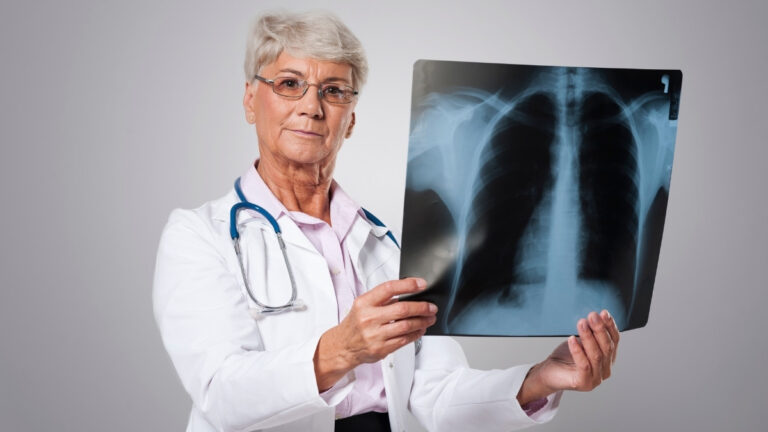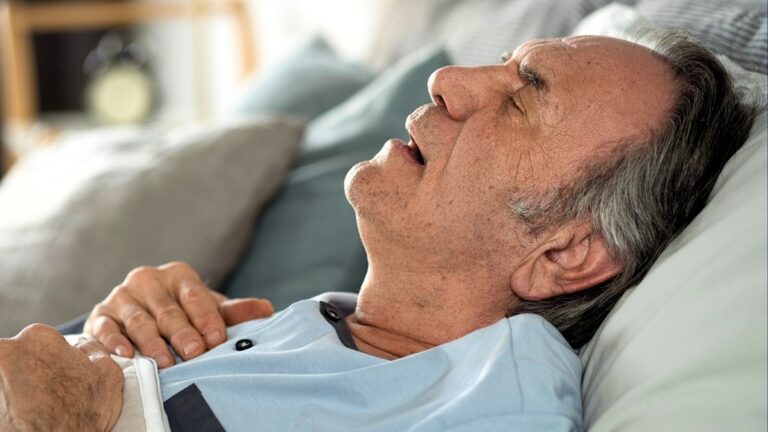The Hidden Heart Attack Symptom That 70% of Seniors Ignore
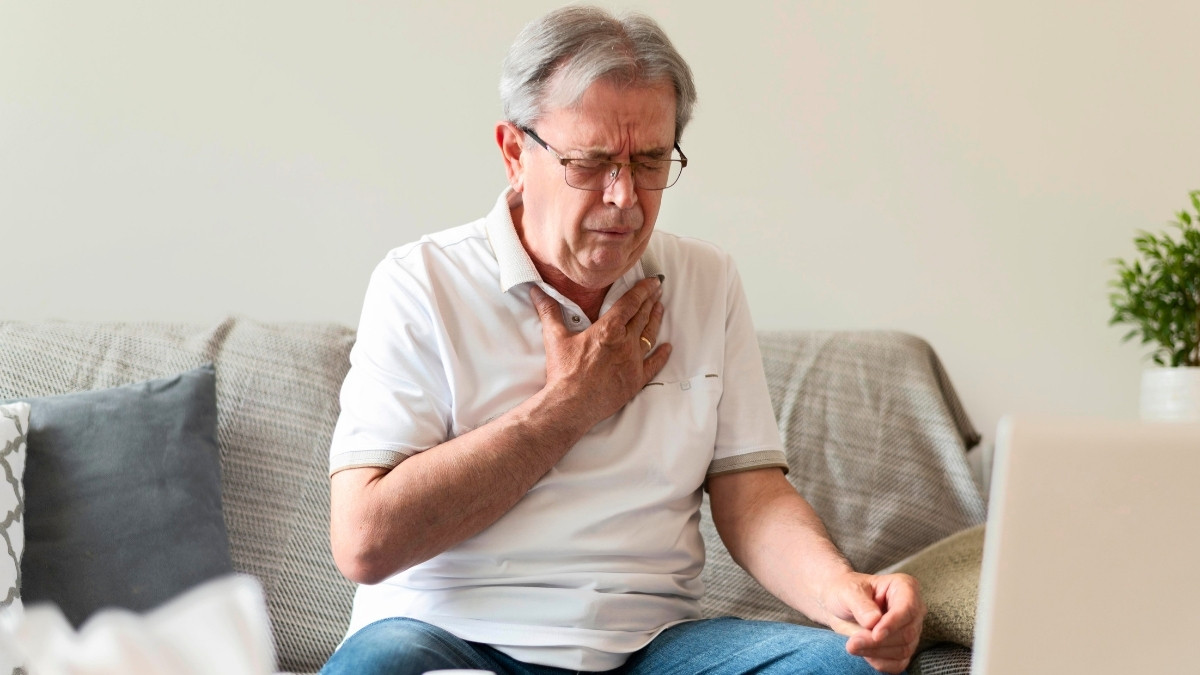
When you picture a heart attack, you probably see someone clutching their chest. But for many seniors, especially women, a heart attack feels completely different. This is a big problem.
Many seniors experience atypical heart attack symptoms. They brush off these signs as just feeling run down, having indigestion, or being part of “normal aging.” This is a dangerous, and sometimes fatal, mistake.
This article will show you the most-ignored hidden heart attack symptom. We will cover why it happens and the other crucial senior heart attack warning signs you must not ignore. Knowing this information could save your life.
The #1 Hidden Heart Attack Symptom: Sudden, Extreme Fatigue
The top hidden heart attack symptom is heart attack fatigue. This is not the same as feeling tired after a long day. It’s a deep, sudden exhaustion that stops you in your tracks.
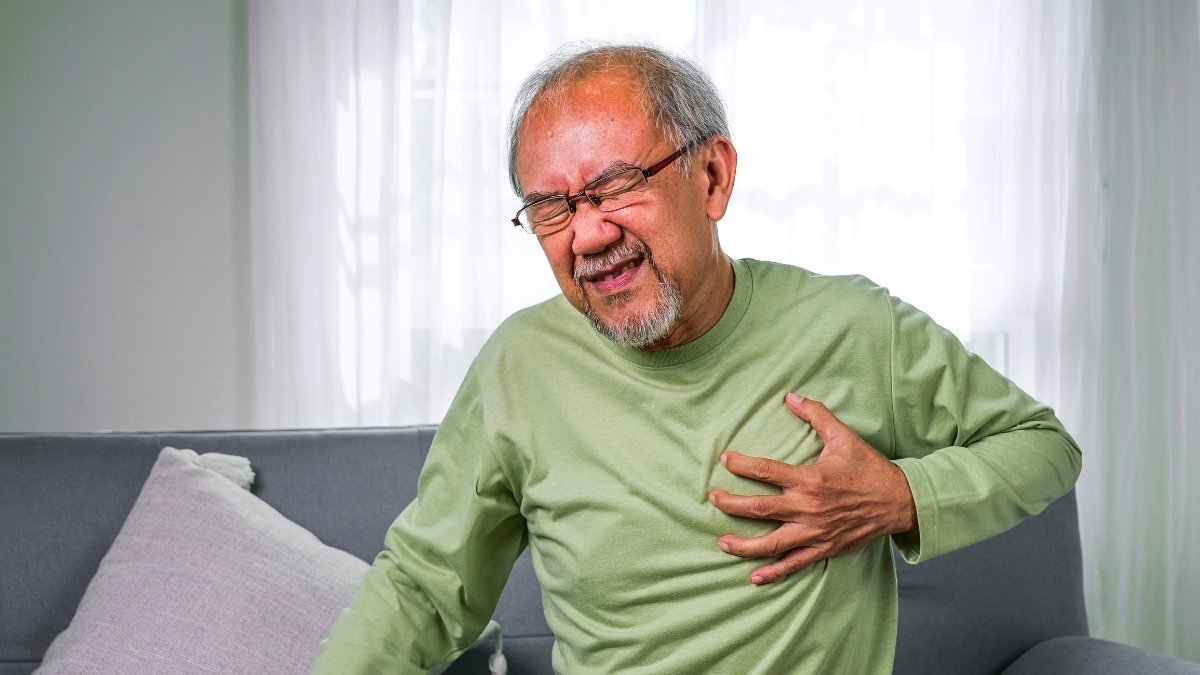
The key difference is that this fatigue comes on fast. It is not related to poor sleep or physical work. You might feel fine one minute, then suddenly too weak to lift a kettle.
This symptom is so easy to ignore. You might blame it on a bad night’s sleep. Or you just assume, “This is what getting old feels like.”

This is a dangerous assumption. Research from the American Heart Association shows many seniors, especially women, have atypical heart attack symptoms. Instead of chest pain, they report things like fatigue and nausea.
Why Heart Attack Warning Signs Change With Age
You might wonder, “Why don’t I get that classic, crushing chest pain?” The answer is that your body’s alarm system changes over the decades. Your main “check engine” light might not work anymore.
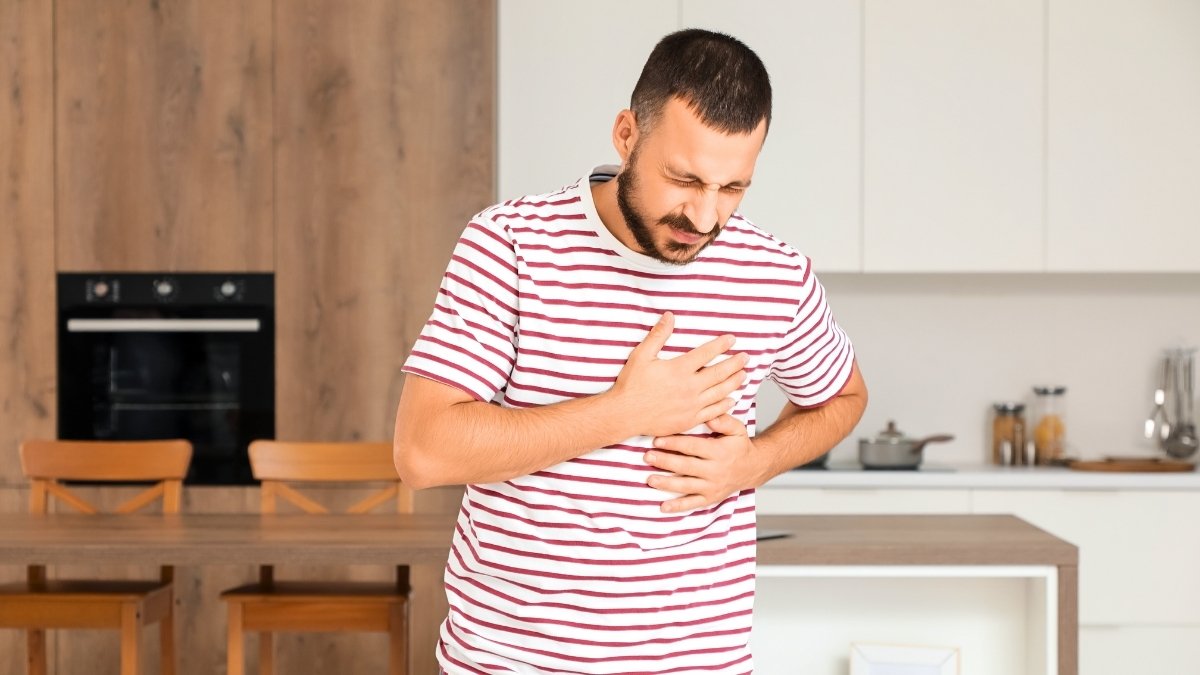
Other health issues, like diabetes or high blood pressure, can damage the nerves. These damaged nerves can’t send a strong pain signal from your heart. This is why the senior heart attack warning signs are often so different.
Your brain’s way of reading pain signals also changes with age. On top of that, gender plays a big role. Senior women are far more likely to have atypical symptoms like nausea or extreme fatigue instead of obvious chest pain.

Sometimes, a heart attack has symptoms so mild they are missed entirely. This is known as a “silent heart attack” (SMI). Your body may send a “backup” signal, like jaw pain or sudden dizziness, because the main alarm is offline.
Beyond Fatigue: 5 Other Atypical Senior Heart Attack Warning Signs
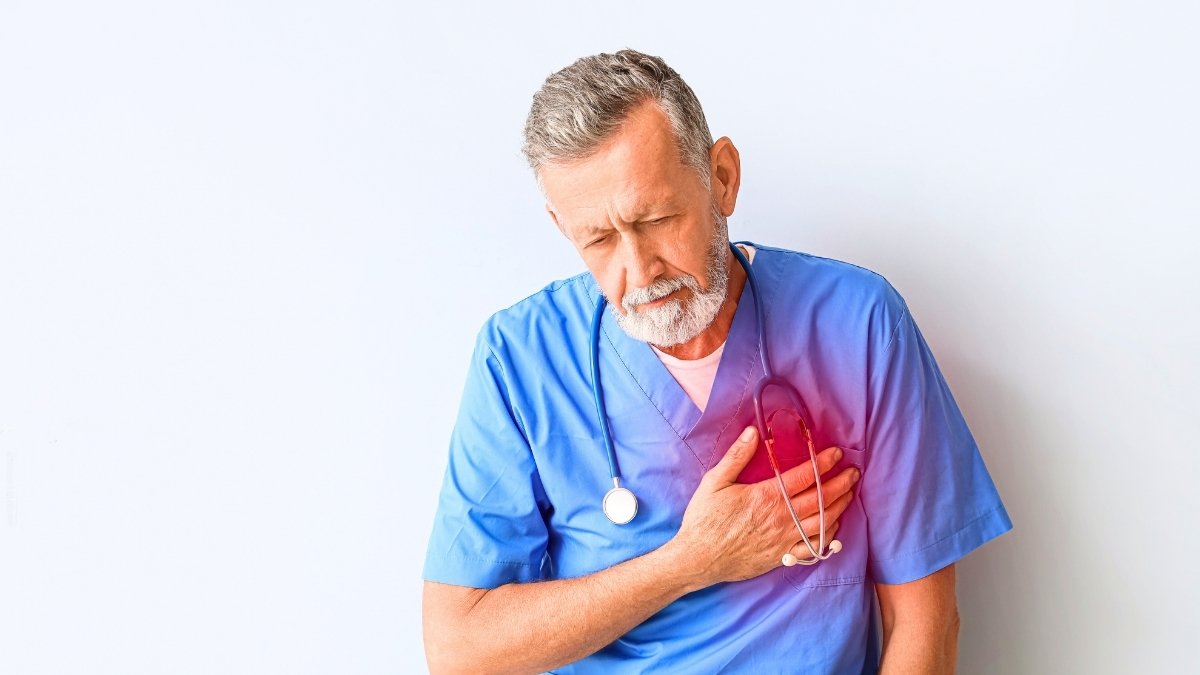
Sudden fatigue is a major warning, but it often brings friends. These other atypical heart attack symptoms in seniors are just as serious. Pay close attention if you feel:
1. Shortness of Breath
Feeling winded without exerting yourself is one of the most concerning signs that something may be wrong with your heart. You might notice you’re struggling to breathe while walking short distances, climbing stairs, or even while sitting or lying down.
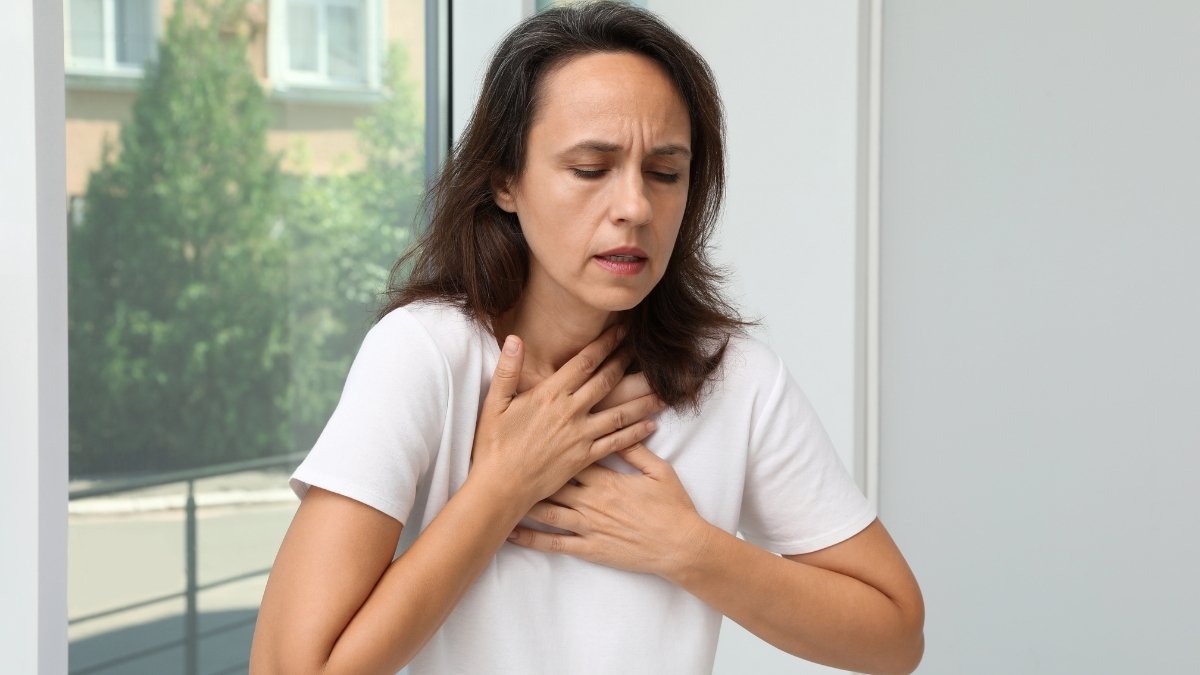
Some people describe it as an uncomfortable tightness in the chest or the sensation of not getting enough air, no matter how deeply they breathe. This happens because when the heart isn’t pumping efficiently, blood and fluid can back up into the lungs, making it harder to take in oxygen.
2. Pain in “Other” Places
While chest pain is the classic heart attack symptom, many seniors feel discomfort elsewhere in the body — sometimes with no chest pain at all. You may feel a dull ache, tightness, or pressure in your neck, jaw, shoulders, back, or one or both arms. For some, the pain may seem to move around or come and go.
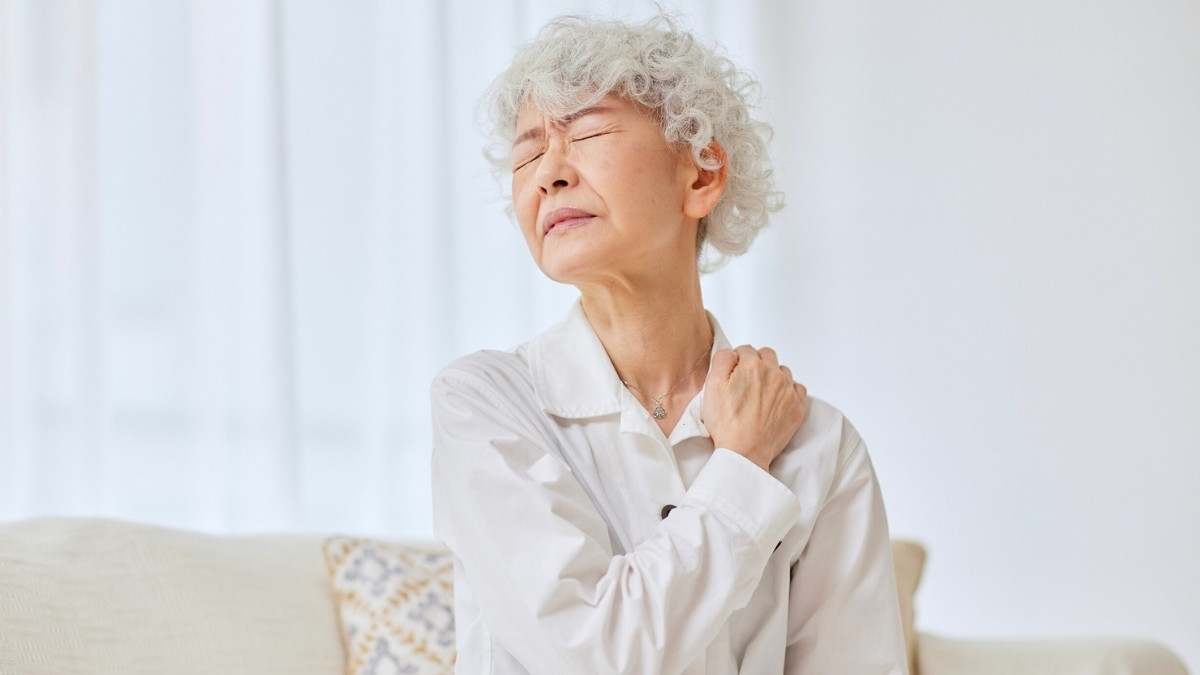
This happens because the nerves that send pain signals from the heart can overlap with those from other body parts, a phenomenon known as referred pain. Older adults often dismiss this type of pain as muscle strain or arthritis, but when it appears suddenly, lasts for several minutes, or occurs along with other symptoms like sweating or nausea, it may be heart-related.
3. Sudden Stomach Distress
A heart attack can sometimes masquerade as stomach trouble. You might experience nausea, vomiting, or intense indigestion that seems to appear out of nowhere. The discomfort may feel like a burning or heavy sensation in the upper abdomen, similar to severe heartburn, but it won’t respond to antacids or changes in position.

This occurs because reduced blood flow to the heart can trigger the vagus nerve, which also influences the stomach and intestines. As a result, the brain may interpret the pain as gastrointestinal distress. Seniors and women in particular may experience this symptom instead of chest pain, leading them to misjudge it as a simple stomach issue.
4. Unexplained Dizziness or Lightheadedness
Another subtle yet dangerous warning sign of a heart attack in seniors is sudden dizziness or a faint, spinning sensation. You might feel as though the room is moving, your vision is blurred, or you’re about to pass out. These feelings arise when the heart can’t pump enough blood to the brain, often due to a blockage or irregular heartbeat.

Dizziness can also occur alongside other symptoms like nausea, cold sweat, or fatigue. Because dizziness is common in older adults — often linked to dehydration, medication side effects, or standing up too quickly — it’s easy to overlook.
5. Breaking Out in a Cold Sweat
A sudden cold, clammy sweat is one of the most telling signs of a heart attack, yet it’s often dismissed as anxiety or a passing discomfort. Unlike sweating from exercise or heat, this type of perspiration occurs even when you’re at rest or in a cool room. It may be accompanied by feelings of unease, nausea, or pain in the chest, jaw, or back.

This happens because the heart’s distress triggers the body’s “fight or flight” response, flooding your system with adrenaline and causing sweating as the body struggles to cope with reduced blood flow. Many people describe this as a feeling of being “cold and sick all over.”
Your Life-Saving Action Plan: “When in Doubt, Check it Out”

You feel something strange. Your jaw aches. Your back hurts. You feel dizzy or sick to your stomach. You think, “This can’t be a heart attack. I don’t have chest pain.”
Stop right there. That thought could kill you.
Here is the truth. Waiting to “see if it gets better” is the most dangerous choice you can make. Heart muscle dies fast without blood flow. Every minute counts.
What to Do Immediately (Your 3-Step Action Plan)
Step 1: Stop and Call 911 Right Now
Do not wait and see. Do not have someone drive you to the hospital. Call 911 immediately.
Here is why this matters. Paramedics can start treatment in the ambulance. They can give you medicine and run tests before you even reach the hospital. The survival rate for a heart attack is highest when treatment begins within the first hour. Calling 911 is the fastest way to get that help.

Time is muscle. Every minute your heart goes without blood, more muscle dies. An ambulance is not just a ride. It is the start of your treatment.
Step 2: State Your Suspicion Clearly
When the paramedics arrive, or when you reach the emergency room, say these exact words: “I am concerned I am having a heart attack, even though I don’t have chest pain.”
This is not being dramatic. This forces a different protocol. It tells the medical team to look beyond the obvious. Too many people, especially women, are sent home because they don’t present with “classic” symptoms.

Be your own advocate. Use these words. Describe all your symptoms clearly. Mention the jaw pain, the nausea, the back pain, the unusual fatigue. Do not downplay what you feel.
If the doctor tries to dismiss you, repeat your concern. Ask for an EKG and cardiac enzyme blood tests. These are standard tests for heart attack detection. You have the right to request them.
Step 3: Talk to Your Doctor About Your Personal Risk
After the immediate crisis passes, or if you want to prepare for the future, schedule a talk with your doctor. This is about prevention and preparation.
Ask this specific question: “What would a heart attack likely feel like for me?” Your doctor can look at your personal risk factors. They can tell you what warning signs to watch for based on your age, sex, and health history.

This conversation is critical. It gives you a personalized plan. You will know exactly what to watch for. You will not second-guess yourself when symptoms appear.
Also ask about your risk factors. Do you have high blood pressure, high cholesterol, or diabetes? Do you have a family history of heart disease? Understanding your risk helps you stay alert.
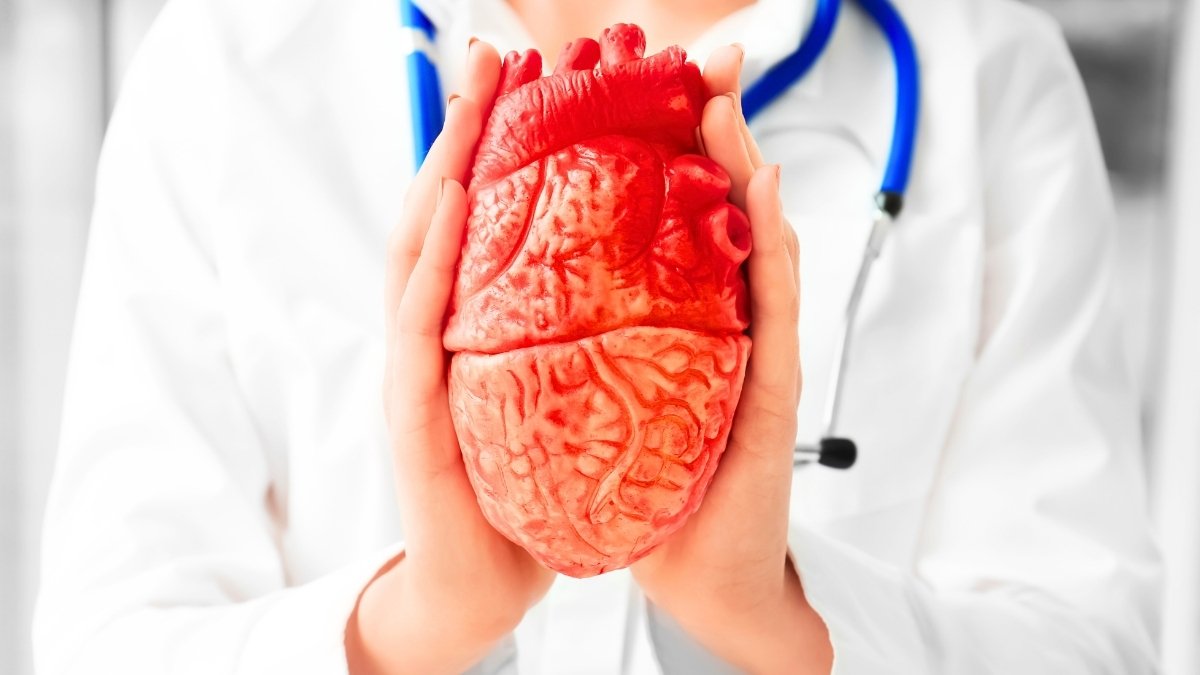
The bottom line is simple. When in doubt, check it out. Do not wait. Do not minimize your symptoms. Do not worry about being embarrassed if it turns out to be nothing. It is always better to be safe.
Final Thought:
Your body is smart and sends you warning signs. That sudden, crushing fatigue or new shortness of breath is not “just aging.” It is a serious alarm bell.
The single biggest mistake you can make is to ignore it. Trust your intuition. If a symptom feels new, sudden, or just wrong, act immediately and call 911.

